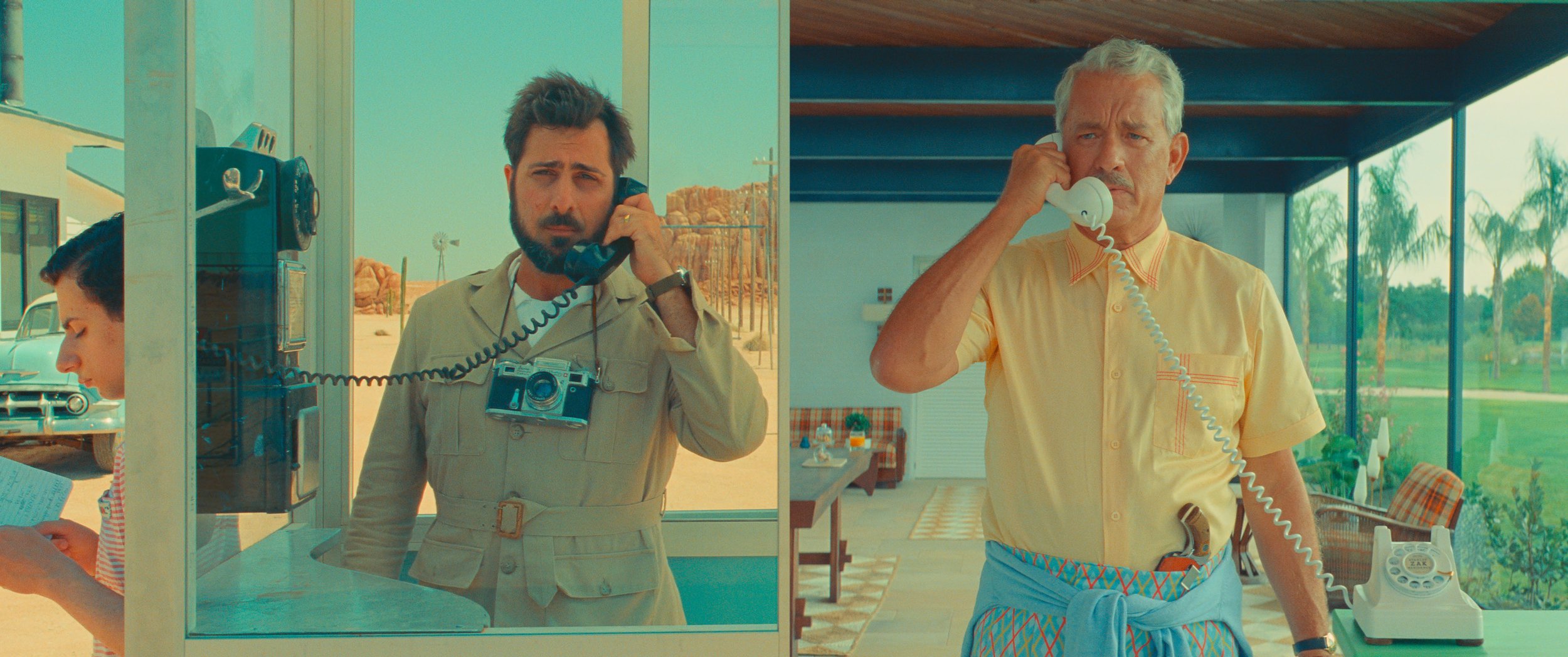‘Asteroid City’ Movie Review: Wes Anderson’s Style Overshadows a Pensive Portrait of Grief
From Jeff Nelson
Asteroid City doubles down on Wes Anderson’s signature narrative style, but it’s frequently at odds with the story’s pathos. This blend of theatre and cinema offers a seemingly neverending engine of quirkiness with independently profound moments that don’t quite merge into the great picture it wants to be.
The story of Asteroid City unfolds across three acts and an epilogue, shifting between the stage play’s development and the script playing out in front of our eyes, set in 1955. This fictional city earned its place on the map thanks to a huge meteor crater and the nearby state-of-the-art celestial observatory. Five young prodigies arrive to earn recognition for their world-changing inventions, but their extraordinary weekend comes to a sudden halt when an alien appears that results in the government putting the small town under quarantine.
Augie Steenbeck (Jason Schwartzman) reaches the Junior Stargazers celebration with his children, including his “brainiac” son, Woodrow (Jake Ryan). Augie is a recent widow, who strikes a connection with Midge Campbell (Scarlett Johansson), an actor traveling with her invention-creating daughter (Grace Edwards).
Anderson’s screenplay shines light on another side of the filmmaker, exploring existentialism and the true meaning of life. Augie and Midge simultaneously wrestle with their own grief and their helplessness in their own identities, which sits at the core of a large ensemble piece. These two lost souls aimlessly navigate the art of 1950s Hollywood and war photography, but their distinct worlds collide in their moments of shared pain that pours into their respective family turmoil that unfolds during their stay in Asteroid City.
Schwartzman and Johansson’s performances are the heart of Asteroid City, both of whom effortlessly traverse their characters’ yearning for relief. Anderson once again recruits an all-star cast, including Tilda Swinton and Tom Hanks, but they all speak in a plain, frank cadence that minimizes the swells of emotion that are frustratingly hidden beneath a direction-created veil.
Tonally, Asteroid City is inconsistent. Anderson forces as many of his trademarks into small vignettes that instantaneously yanks the audience from feeling any sort of connection to the characters and their world. He zips from one story to the next for the sake of quirky gags, some of which deliver witty comedy, but at the sacrifice of well-defined characters.
Robert D. Yeoman is no stranger to working with Anderson, once again crafting gorgeous cinematography through Asteroid City’s alternating use of luscious pastels and black-and-white imagery. Adam Stockhausen’s production design is equally breathtaking in its ability to craft this desert town into a dreamlike wonder that’s impressively tangible.
Asteroid City is undoubtedly impressed with itself, frequently patting itself on the back in honor of its cleverness. Anderson raises compelling themes, lively humor, and colorful characters, but he isn’t able to get out of his own way to translate his strengths into a cohesive story, leaving only fragments of what could have been a great film.
Rating: 2.5/5

